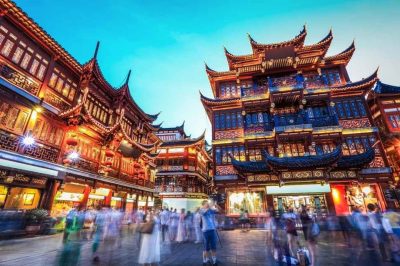 Yesterday, the Ministry of Culture and Tourism of China issued a statement saying that it and its relevant departments had made a decision to blacklist its citizens from traveling to foreign gambling destinations. The destinations that would be affected by the ban have not been revealed so far, though.
Yesterday, the Ministry of Culture and Tourism of China issued a statement saying that it and its relevant departments had made a decision to blacklist its citizens from traveling to foreign gambling destinations. The destinations that would be affected by the ban have not been revealed so far, though.
As explained by the Ministry, overseas casinos often attract Chinese tourists, who prefer to visit them and take advantage of the gambling options available. According to the authorities, however, the Chinese outbound tourism market is disrupted by such trips, with the personal and property safety of Chinese citizens being jeopardized.
Designed and established in collaboration with other departments, the blacklist is aimed at implementing travel restrictions on Chinese nationals in order to potentially prevent them from traveling to casino destinations that have been reliant on foreign customers. Apart from that, the Ministry said that the latest announcement was made in the context of what it described as an “increased convenience in exchanges” that had increased the number of Chinese citizens traveling to overseas casino destinations.
Analysts from JP Morgan Securities have made some speculations regarding the ban, saying they read the blacklist announcement as a warning to some casino destinations in Southeast Asia, including the Philippines, Cambodia and Vietnam, which allow proxy/video bets. This type of bets involves players who physically present in casino venues and place a bet at live-dealer table games after getting instructions from a person outside the casino; or placing bets via live video streaming allowed by the jurisdiction.
Apart from that, JP Morgan Securities’ analysts have said that the travel ban would probably affect Australia that has been known for attracting affluent high-roller gamblers from China via junket operators.
The Philippines, Cambodia, Vietnam and Australia Would Probably Be Most Affected by Overseas Gambling Ban
 Currently, there are several integrated casino resorts in the Philippines, with the country also having a flourishing online gambling sector that offers video-streamed games. The country’s government has rejected the calls China made to see its online operations ceased in 2019. Cambodia, on the other hand, agreed to shut down online gambling services but in the country, there are still casinos that could easily be accessed by Chinese citizens.
Currently, there are several integrated casino resorts in the Philippines, with the country also having a flourishing online gambling sector that offers video-streamed games. The country’s government has rejected the calls China made to see its online operations ceased in 2019. Cambodia, on the other hand, agreed to shut down online gambling services but in the country, there are still casinos that could easily be accessed by Chinese citizens.
As mentioned above, Australia has been known as a country where casino operators are greatly reliant on revenue generated by so-called high-roller gamblers who are often affluent Chinese customers attracted to local casinos via controversial junket operators.
According to experts, the announcement of the blacklisting measures does not necessarily mean that all foreign casino destinations would be endangered from facing such a ban. They noted that markets like Singapore, Malaysia and Korea could be less affected by the blacklisting. Macau, on the other hand, is likely not to be affected at all, although it is a huge market fur junket operators. After all, the central government of China does not consider the special administrative region an overseas destination, which basically means that Macau could turn out as the largest beneficiary of the blacklist.
In any case, JP Morgan’s analysts said that, at this stage, it remains unknown exactly what the Chinese government means by “blacklisting” and how it intends to control it, but they said they suspected that the authorities would unveil heavy scrutiny. The measures unveiled by the Chinese Ministry seem to be part of the local authorities’ efforts to tackle illegal overseas gambling, such as online casinos, video streaming and proxy betting, and to prevent large money flows from being drained from the country’s economy.